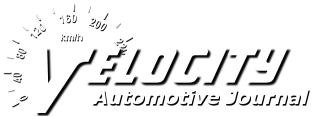Hyundai i-Blue Fuel Cell Concept Makes North American Debut at Chicago Auto
02/06/2008
Hyundai
Hyundai's new hydrogen-powered, zero-emission concept, the i-Blue Fuel Cell Electric Vehicle (FCEV), debuted in North America at the 100th edition of the Chicago Auto Show today. Developed at Hyundai's Design and Technical Center in Chiba, Japan, the i-Blue concept illustrates the design direction for a future FCEV production model. The all-new i-Blue platform features Hyundai's third-generation fuel cell technology, currently being developed at Hyundai's Eco-Technology Research Institute in Mabuk, Korea.
The i-Blue demonstrates a significant step towards commercialization of Hyundai fuel cell vehicles. Unlike its predecessors which were built on production SUV platforms, the i-Blue features a new, purpose-built 2+2 crossover architecture.
The i-Blue is powered by a 100 kW electric engine and fuel cell stack. Fueled with compressed hydrogen (700 bar) stored in a 115-liter tank, i-Blue is capable of running more than 370 miles per refueling and achieves a maximum speed of more than 100 miles per hour.
The i-Blue's fuel cell stack is housed underfloor, not in the engine compartment as in the second-generation Tucson FCEV. This gives the car ideal 50:50 weight distribution for optimal driving and handling dynamics, as well as better air flow and cooling. Like other fuel cell vehicles, i-Blue's only emission is water vapor.
The i-Blue FCEV has a dynamic and elegant exterior design, resembling TaeKuk, which is based on the philosophy of Ying and Yang, in which opposite forces are unified in perfect balance to create something new. The i-Blue's body was styled by unifying two distinct geometric forms -- the square and the circle -- thereby creating a rhombus-like shape. The character lines of the front and rear fender add chiseled detail to an otherwise rounded body sculpture.
i-Blue employs the latest advancements in technology to ensure driving safety. Drivers of the i-Blue will be excited about the innovative, aircraft-like steering wheel that integrates touch-scroll control pads, enabling the driver to keep his hands on the wheel while operating the vehicle's audio-visual systems. The 3D vision heads-up display (HUD) also adds safety and convenience by providing essential information for the driver at eye level.
The outside environment is constantly projected through the vehicle's full-surround camera system. Using the latest image processing techniques, the vehicle's monitoring system provides a virtual picture of the vehicle and its surroundings, including hidden obstacles the driver may not see.
Many more future convenience features from Hyundai, such as side- and rear-view monitors, along with a liquid crystal display for gauges and multimedia controls are shown on the i-Blue concept vehicle as well.
Hyundai Motor Company is at the forefront of advanced technology research. In September 2005, Hyundai celebrated the grand opening of its Eco-Technology Research Institute in Mabuk, Korea, which houses all R&D on environmentally friendly technologies, concentrating Hyundai's efforts to develop alternative powertrains in one state-of-the-art facility.
In the United States, Hyundai has been a member of the California Fuel Cell Partnership (CaFCP) since 2000. Hyundai's first-generation Santa Fe and second-generation Tucson FCEVs have both been tested at the Partnership's facility in Sacramento, Calif.
In 2004, Hyundai began a partnership with Chevron Corp. and UTC Power to initiate a 32-vehicle fleet testing program. This five-year cost-sharing program is sponsored by the United States Department of Energy.
Hyundai is currently operating fleets at Hyundai America Technical Center in Chino, Calif.; California Air Resources Board in Sacramento, Calif.; AC Transit in Oakland, Calif.; Southern California Edison in Rosemead, Calif.; and the U.S. Army TACOM facility in Warren, Mich.
Hyundai is working toward mass production of hydrogen-powered fuel cell vehicles in the next decade.
Hyundai Motor America, headquartered in Fountain Valley, Calif., is a subsidiary of Hyundai Motor Co. of Korea. Hyundai vehicles are distributed throughout the United States by Hyundai Motor America and are sold and serviced through more than 780 dealerships nationwide.
